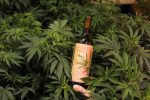In every industry, there’s an underlying threat and worry that as AI advances, jobs will be at risk. This programming is deeply instilled in labor workers who have grown accustomed to income security to maintain their expenses or quality of life. But what if we’re looking at robots all wrong?
Instead of seeing a robot job apocalypse, what if they’re the machines to lift us to our highest degree? Robots are already proving to improve efficiency and cut company costs, so it’s inevitable they’ll come to a job near you soon.
For the budding cannabis industry, everything is fresh and new as the market is in its infancy. That means new systems and new workers have the opportunity to implement robotics to get ahead of the competition and boost morale earlier than most.
So, here, let’s de-program the way we think about robots today and cover the top three ways robots can help, not hurt, the cannabis industry—and the livelihoods of its workers too!
#1 Labor Shortage Gaps Need To Be Filled
Let’s get real—the cannabis industry is feeling the labor shortage just as much as anyone. Even more, it’s extremely difficult in this day and age to only pay a minimum wage to workers. This is true from coast to coast, but especially in lucrative cannabis markets like California, which have a higher cost of living for workers to meet.
“Robots aren’t here to hurt the cannabis industry, they’re here to help”Another predicament for facility owners? You can’t pay more for low-level repetitive tasks without significantly decreasing margins for your company while remaining competitive in such a bustling market. Moreover, humans just aren’t built to sit in closed, highly regulated areas, repeating the same motions over and over, to fill pre-rolls, vape carts, package jars and beyond.
By implementing robotics and automation tools, cannabis industry owners can not only fill labor shortage gaps but also alleviate labor costs for an improved bottom line. In addition, this will allow executives to better leverage labor costs towards more valuable positions that are more rewarding for employees too.
#2 Human Productivity Declines Over Extended Periods of Time
You know how you move with speed and precision when you first begin a repetitive task? Think exercising. When you first start your set of mountain climbers, your body moves mechanically, hitting the steps on point, repeatedly. But by the end, you’re struggling to get 1 or 2 last pushes in to hit your reps.

Manual labor and repetitive tasks are no different. In fact, there are companies in the world that hire workers to pack cases for just one hour a day. Why? Because their analytics have shown that after just one hour of work, the employees zone out and lose focus, which decreases productivity over time and increases the chance of human error.
In cannabis, someone has to fill the pre-rolls, and someone has to pack the jars into boxes. But, scheduling one worker for one hour shifts all day every day is a logistical nightmare to get the most productivity from the time you have. With no creative minds of their own (sorry, not sorry), robots are quite literally built for this type of labor and produce accurate results, too.
This allows cannabis owners to pay one up-front investment for the ’employee’ and can rest assured, financially and operationally, that the position will always be filled with no wage raises to consider.
#3 – More Robots Allows For More Rewarding Roles
Last but not least, there are few people in the world who actually desire or dream of the manual labor that’s required to keep the cannabis industry’s momentum moving upward for good reason. The human mind is meant to explore, create and evolve by putting it to use day in, and day out.
Hence, the uptick in investments towards upskilling in the cannabis industry and the passion for retraining employees for more technical roles. For employees, they’re more fulfilling and hold higher value. For employers, you have more human minds at work towards what matters versus the tasks that just need to get done.
Implementing robots in cannabis facilities for these mundane, repetitive, and low-level tasks help open the doors for more fulfilling roles for employees that share an interest in the plant. In the end, allowing them to put that passion and their unique skills, ideas and creativity towards helping your company prosper.
The Bottom Line – Cannabis Robots Are Here to Stay
With any new trend or shift in the labor and job landscape, it’s natural to be cautious of how it may affect you or your workers, both personally and professionally. However, as you can see, robots aren’t here to hurt the cannabis industry, they’re here to help.
As cultivators and other manufacturers struggle to turn a profit, now is the time for the overwhelmingly cottage industry to go big or go home. Because, whether you like it or not, there’s one thing we can all agree on: robots are the future of manufacturing, the cannabis industry included.












